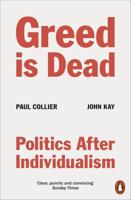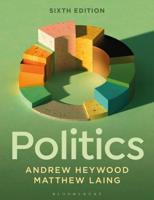Publisher's Synopsis
The normative appraisal of public policy - both the process of policy-making and the substance of the policies themselves - is becoming ever more significant for politicians, public officials, citizens and the academics who study them. On the one hand, the wider population is better informed than ever before of the activities of those who govern them, with the result that expectations of citizens have grown and with it the tendency to criticise those who work on their behalf. On the other hand, though committed to the ideal of democracy, these same citizens have become ever more disillusioned with its actual working as a means for holding politicians and bureaucrats to account. Thus, a whole new machinery for standard setting and monitoring political behaviour has developed. The articles selected for the four volumes in this series explore and assess the normative implications of the development to appraise the efficacy and legitimacy of policy, procedures, mechanisms and outcomes. These issues are at the heart of many of the most exciting new areas of research and teaching and therefore this series is an essential reference resource for researchers and teachers across a range of disciplines: moral and political philosophy, politics and international relations, public administration and law and jurisprudence.










